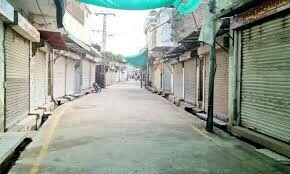THEATRE is the unparalleled vehicle to explore human emotions, conflicts and relationships. A good play, well directed, acted and staged, usually builds up tensions as the protagonists confront each other and their own personal demons. And contemporary affairs often provide a playwright with the material to lend urgency to the proceedings.
Directed by Michael Longhurst at the Almeida, They Drink It in the Congo is just such a theatrical experience. Taut, relevant, and intensely political, it shows how inventive stagecraft, combined with good material, can bring a distant conflict home to an audience largely unfamiliar with the issues raised on stage.
Congo has a dark and violent history, with slavery, tribal warfare and a brutal colonial heritage causing untold misery and mayhem. The Belgian presence in the vast African country was perhaps the most vicious exercise in foreign exploitation ever seen. Literally millions died during the colonial period.
Even when forced into abandoning their colony, the Belgians sought to continue their exploitation of their ex-colony by engineering a breakaway of the mineral-rich province of Katanga. It took years of bloody civil war to quell the separatists who were backed by Belgian mining interests. The country continues to be wracked by violence as a number of militias prey upon villagers, employing rape as a weapon of war. Neighbouring Rwanda has contributed to the chaos and killing.
Adam Brace, the playwright, has used the presence of a large Congolese diaspora in London to give the audience a glimpse into the heart of darkness. Stef, a Kenyan-born, Cambridge-educated white liberal, decides to initiate an annual festival to raise consciousness about the plight of the Congolese people. Called Congo Voice, the event is intended to pull in diverse groups and non-governmental organisations. However, many Congolese are sceptical. As Anne-Marie, a Congolese character, says: “White words from black mouths. That’s what this event is. And it has no value.”
Assisted by Tony, a public relations professional and an ex-lover, Stef is soon caught up in the whirlpool of diaspora rivalries on the one hand, and the politics of NGOs on the other. A radical Congolese group threatens violence if the event is not cancelled.
Stef is also caught up in her own white guilt at having been part of the rich, white expatriate crowd that dominates a large chunk of the Kenyan economy. She earnestly wants to help, but arrogantly thinks she knows how to set up Congo Voice better than the diaspora Congolese she is dealing with.
And as we watch this interplay of clashing egos and viewpoints, the stage abruptly opens up in the middle to reveal a dusty mine where locals toil: we are now in the Congo, watching miners extract mineral-rich rocks. Next, a floor slides over the hole and we are in a hut with a young girl lying in bed, begging her father to tell her a story. Suddenly, there is the sound of firing, and the father tells his daughter to run into the jungle. But she is caught and dragged back to the hut where she is brutally gang-raped. The father tries to intervene, but is slashed across the head with a machete.
In the next scene, a white nurse is tending to the girl when Stef enters. Badly shaken, she is clearly of no use in a conflict zone. Is this the source of guilt that propels her to help the Congolese back in London?
Stef insists that a third of the Congo Voice committee must be Congolese, but one by one, they withdraw under pressure from the radicals or due to their own squabbles. Anne-Marie is attacked and may lose an eye. In one hilarious scene, the radical group prepares an anti-regime video, with members stamping their boots on a portrait of the president, Joseph Kabila. Since there are only three of them, they change shoes and trousers each time they express their contempt for the president in order to show that a large number of dissidents are involved. Just when Stef enters, two of them are trying to disentangle their feet from their trousers.
Among the Congolese, apart from political differences, there is also an element of guilt over having left the homeland and living comfortably in London. In the younger generation, there is the issue of deracination and loss of identity. These issues are common to many communities who live abroad, but Adam Brace handles them sensitively and occasionally, with humour.
There are many references to the exploitation of the Congo for its mineral wealth. Currently, China buys around half of the country’s exports of tin, tantalum and tungsten — all metals used extensively in computers and cellphones. But thus far, many of the mining operations are manual, as we saw in the play. However, Alphamin, a Canadian firm, is currently building a road to the tin mine at Bisie that would allow it to mechanise extraction and vastly increase the yield.
Although Alphamin was granted a licence in 2006, it was unable to actually start work until 2012 due to the fighting nearby. But should it succeed in meeting its ambitious targets, the locals would benefit. However, as The Economist noted in a recent article:
“In much of Africa, having natural resources has often proved to be a curse. Gems and minerals have funded rebel armies and kept conflicts burning. Governments that can raise big bucks from oil and mineral royalties… have had little incentive to govern well. The ruling class have devoted their energies to divvying up the easy money rather than actually governing.”
Until politicians get their act together, the Congolese people will continue to suffer.
Published in Dawn, September 5th, 2016
















































Dear visitor, the comments section is undergoing an overhaul and will return soon.